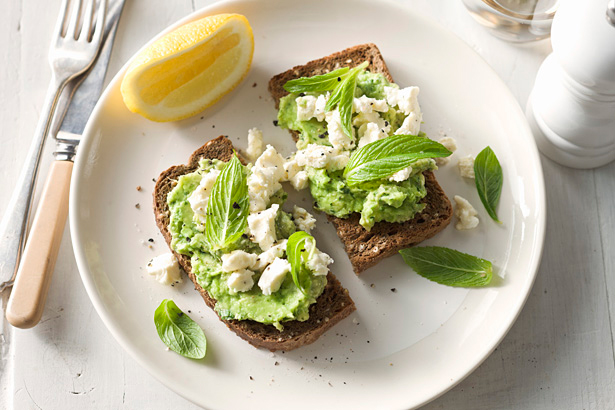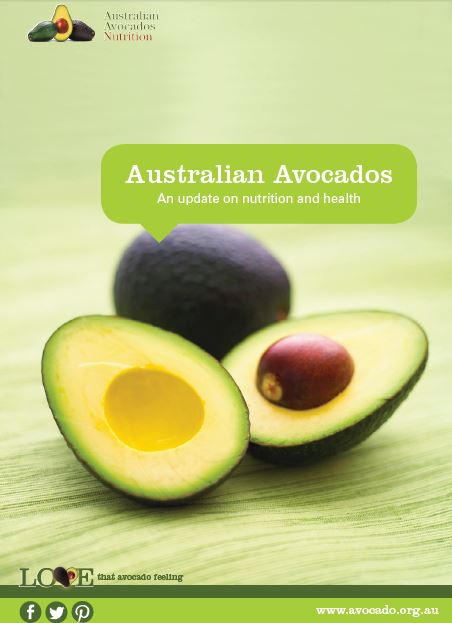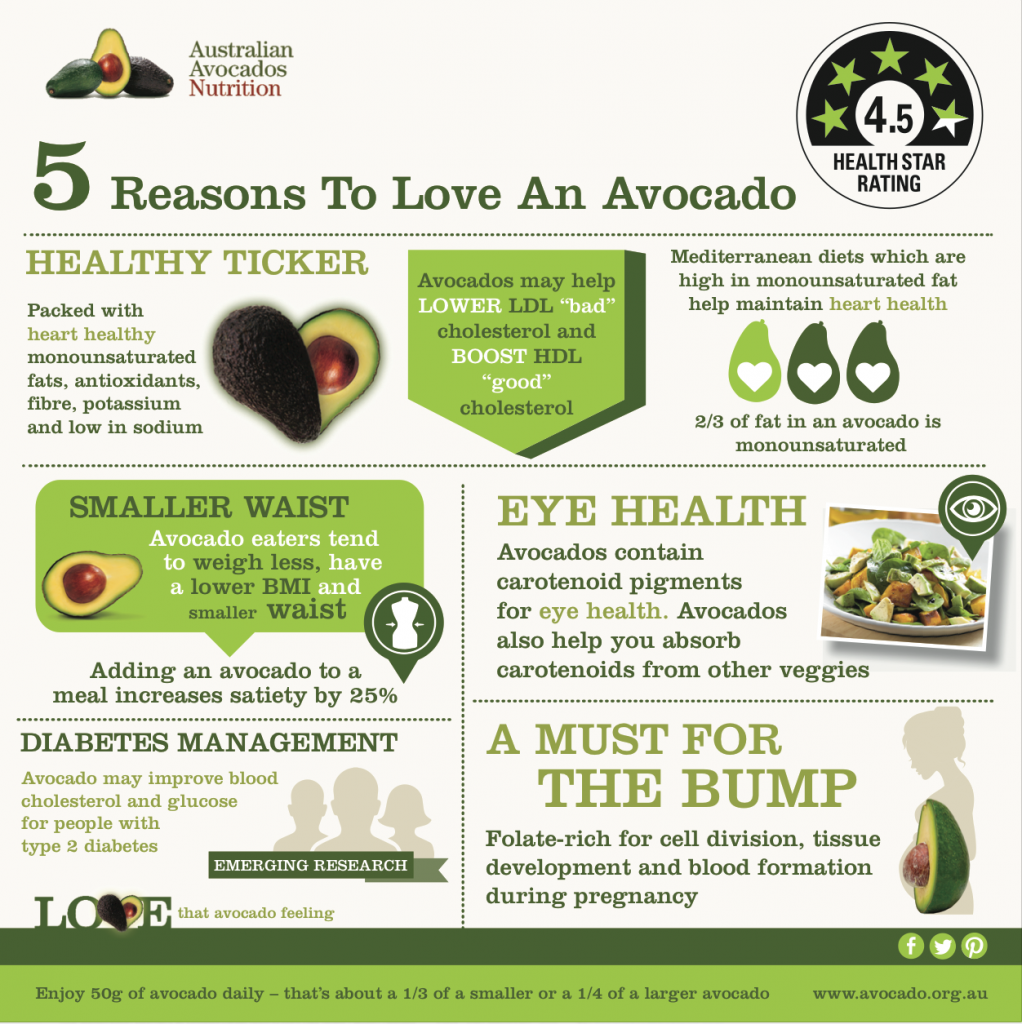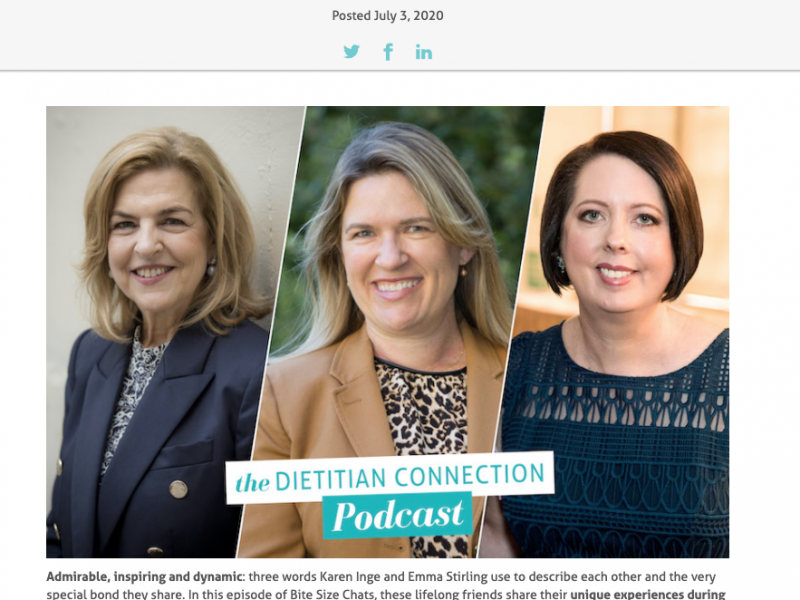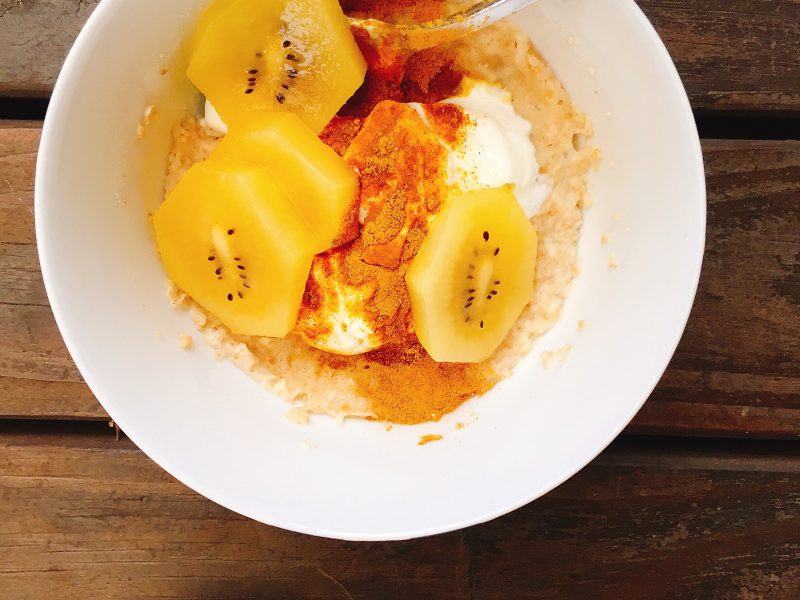No matter what your diet persuasion – from those with a paleo passion to vehement vegans – the one thing we can all agree on is avocado is a “must have” food in the diet. So this week we caught up with a regular Scoop guest to bring your the scoop, literally.
Lisa Yates is a higly experienced, Advanced Accredited Practising Dietitian and nutrition writer. She runs an active private practice in Sydney and consults to the food and health industries, including Australian Avocados. She is also an instrumental team member of Storehouse nutrition blog directory.
Once sidelined due to their perceived high fat content, avocados are now in the spotlight, taking centre stage as part of the most popular diets. While I’m certainly not one to support jumping on board the latest diet trend, I am an avo-cate (yes OK …..just one avo pun I promise).
Avocados are star powered ranking 4.5 stars in the new health star rating because they are a nutrient dense fruit delivering almost 20 vitamins, nutrients and phytonutrients.. In fact, the research shows avocado eaters consume significantly more key nutrients than non- avocado eaters.
I’ve recently reviewed the past 20 years of scientific research on avocados examining their nutrition and health benefits to develop a summary report of the findings Australian Avocados – An Update on Health and Nutrition.
Here are my five keys reasons to be adding avocado to your daily diet:
Healthy Ticker – Avocados do contain fat but they are hardly a high fat food – about 13g per 100g. Half the fat is heart healthy monounsaturated fats. As avocados ripen the monounsaturated fats actually increase and the saturated fats decrease. Diets high in foods that contain monounsaturated fats, such as the Mediterranean diet have been shown to reduce the risk of heart disease. Research also shows avocados may help boost HDL cholesterol and lower LDL cholesterol, a key risk factor of heart disease. A new US study, published since my review, adds to this evidence with results revealing that eating an avocado a day (136g or a smaller Australian avocado) as part of a moderate-fat diet significantly reduces LDL cholesterol more than a lower-fat diet (an LDL reduction of o.35mmol/L , compared to 0.19mmol/L).
Waist Watcher – Research indicates a role for avocados in promoting satiety and as an alternative to other dietary fats in energy-restricted diets. Adding about 75g or half a smaller avocado to a meal has been shown to significantly increase satiety by about 25 per cent and help reduce snacking by keeping you feeling full for three to five hours after a meal. Specifically people who eat avocado also tend to weigh less, have a lower BMI and a smaller waist compared to those who don’t eat avocado.
Eye, Eye – Avocados contain colourful carotenoid pigments for eye health. These pigments help reduce the risk of macular degeneration. The healthy fats in avocados also absorb fat-soluble carotenoids from other colourful plant foods and helps the conversion of the orange pigment beta carotene into vitamin A. Research shows that eatinging150g or a whole smaller size avocado with carrots for instance significantly increases the absorption of betacarotene from carrots by nearly 7 fold and conversion to vitamin A by 5 fold.
A Must For The Bump – Avocados are rich in folate, a B group vitamin that is important for cell division, tissue development and blood formation during pregnancy. A varied diet rich in folate may reduce the risk of foetal neutral tube defects like spina bifida. A quarter of a large avocado (50g) contains 60 micrograms of folate, which is 10 per cent of the recommended daily intake for pregnant women.
Emerging evidence on diabetes – For people with type 2 diabetes, consuming avocado as part of a healthy diet may help manage blood glucose levels as well as lowering cholesterol and triglycerides without compromising blood glucose control. More research is needed in this area though.
To get the maximum health benefits from avocado, I recommend eating 50g a day – that’s about a quarter of a large avocado or a third of a smaller avocado. Avocado size will vary from season to season and shop to shop.
It’s as simple as adding some avo to a salad at lunch or as the new Australian Dietary Guidelines recommend, swapping high saturated fat spreads like butter for monounsaturated fat options like avocado.
So enjoy a green-skinned Shepard avocado in season from March to April or the tasty dark-skinned Hass, which we are lucky enough to get year round.
Editor’s comment:
So what say you lovelies? How do you avo each day?
